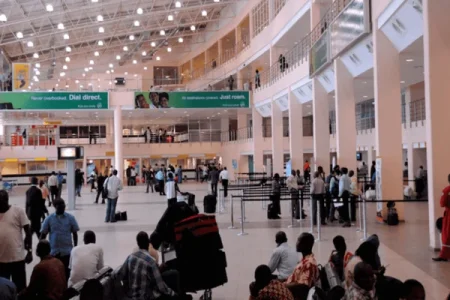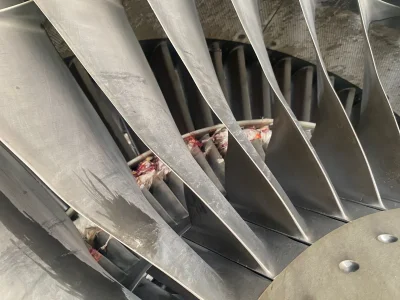
Nigeria’s economic struggles have slashed foreign travel by 60% at Lagos and Abuja airports. Currency devaluation and soaring airfare costs deter casual trips, impacting the tourism and aviation sectors. Experts recommend boosting domestic tourism as Nigerians seek affordable alternatives amid high international travel expenses.
According to Leadership newspaper, economic hardships in Nigeria have led to a 60% drop in foreign travel at major airports, particularly Lagos' Murtala Mohammed International Airport and Abuja's Nnamdi Azikiwe International Airport. Rising ticket prices, driven by the naira's devaluation and soaring foreign exchange rates, have made international travel too costly for many Nigerians. Once common, holiday and casual trips have significantly decreased as travelers either opt for local destinations or avoid non-essential travel altogether.
Data from the Nigeria Civil Aviation Authority (NCAA) reveals that the number of Nigerians traveling abroad fell from 2.04 million in 2023 to 816,000 in the first three quarters of 2024. Ticket prices have increased over 600% due to currency fluctuations, with the cost of an economy seat to the United States rising from approximately ₦350,000 to between ₦2.7 million and ₦3 million. This dramatic increase has made international travel a necessity rather than a leisure option for most, with only essential travelers managing the costs.
Experts say that only a fraction of Nigerians can afford these prices, leading many to seek affordable alternatives, such as local vacations. Abuja’s airport, once a busy hub, has seen a noticeable decline in weekend and holiday traffic, with airlines reducing flight frequencies to offset low passenger numbers.
Kano Airport, however, has maintained steady international traffic, particularly with airlines like EgyptAir and Saudi Air, which operate multiple weekly flights. Industry experts suggest that to alleviate the burden, the Nigerian government could focus on strengthening local tourism and stabilizing the naira to make international travel feasible again. Until then, high costs and diminished purchasing power will likely keep international travel rates low in Nigeria.



